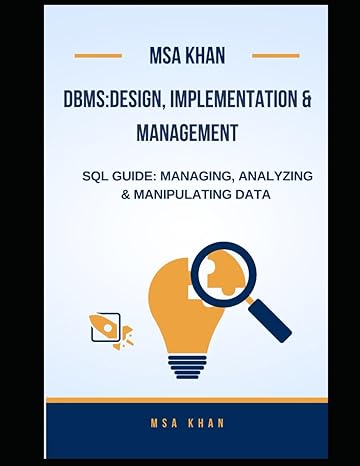Question
a. e_term Write a simple function called e_term which takes a (non-negative) integer argument and computes that term of the infinite series expansion of e.
a. e_term
Write a simple function called e_term which takes a (non-negative) integer argument and computes that term of the infinite series expansion of e. This function is not recursive. Note that the result must be a floating-point number; use the float_of_int function to convert from an OCaml int to a float.
b. e_approximation
Write a recursive function called e_approximation that takes one positive integer argument and computes an approximation to e (an e-proximation, as it were) by summing up that many terms of the infinite series expansion of e (actually, itll sum up the first n+1 terms, since it starts at term 0 and ends at term n). Write the function as a linear recursive process. Use your e_term function to help you write this one.
Please help with these functions in OCaml functional programming code asap!!!
Step by Step Solution
There are 3 Steps involved in it
Step: 1

Get Instant Access to Expert-Tailored Solutions
See step-by-step solutions with expert insights and AI powered tools for academic success
Step: 2

Step: 3

Ace Your Homework with AI
Get the answers you need in no time with our AI-driven, step-by-step assistance
Get Started


